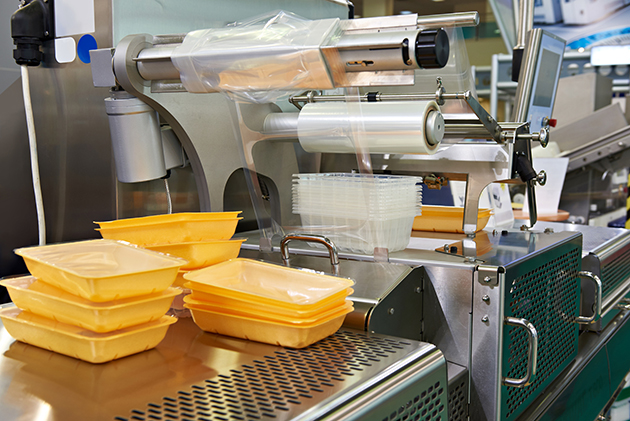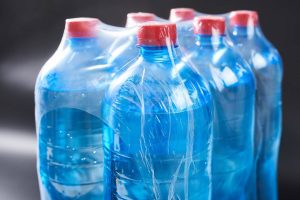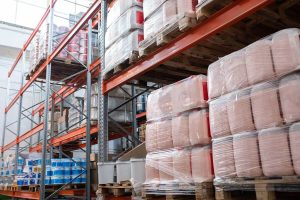
The plastic packaging sector is facing increasing pressure to change due to environmental concerns.
To address environmental problems and promote sustainability, it is crucial to understand the significance of recycling in this sector.
Recycling plastic packaging products is essential for reducing landfill waste, conserving natural resources, minimising greenhouse gas emissions, and fostering a circular economy.
Before we discuss the environmental benefits of recycling in the plastic packaging industry, let’s first explain the basics of sustainable packaging.
What is Sustainable Packaging?
Sustainable packaging focuses on creating packaging solutions that reduce environmental impact by using eco-friendly materials like biodegradable, compostable, or recyclable plastics. It aims to minimize waste and resource consumption while maintaining product protection, ultimately supporting a circular economy where materials are reused or safely returned to nature.
Understanding sustainable packaging is key to appreciating the role recycling plays in making the plastic packaging industry more environmentally responsible.
Environmental Benefits of Recycling in the Plastic Packaging Industry
Recycling in the plastic packaging industry offers crucial environmental advantages. As tertiary packaging is necessary, redirecting it away from landfills and back into the waste management loop becomes essential. This approach enables resource conservation, reduces the strain on landfills, and fosters a circular economy where waste is transformed into valuable materials once again.
Here are some compelling reasons why recycling in this sector benefits the environment.
1. Resource Conservation
Recycling plastic packaging contributes to the preservation of valuable natural resources.
Recycling plastic packaging reduces the demand on virgin plastic resins production, resulting in a decreased reliance on the finite raw materials to produce virgin plastic.
This helps protect the ecosystem and minimises the carbon footprint associated with resource extraction.
2. Power Saving
The extraction and refinement of raw materials, as well as the subsequent polymerisation and shaping processes involved in producing virgin plastic, require significant energy consumption.
However, by recycling plastic packaging, we eliminate the need for these energy-intensive steps, leading to substantial power saving and reducing the overall environmental impact of plastic production.
3. Reduced Greenhouse Gas Emissions
Compared to virgin plastic, recycling plastic packaging reduces greenhouse gas emissions.
It is possible to prevent or reduce these emissions by recycling plastic packaging.
Recycling helps keep plastic waste out of landfills, where it would otherwise degrade and emit greenhouse gases, particularly the potent greenhouse gas methane.
4. Waste Minimisation
The waste stream contains a significant amount of plastic packaging.
Since rigid plastics take hundreds of years to decompose, landfilling plastic waste can contaminate soil and water. As for flexible plastics, the exact timeframe for decomposition varies depending on factors such as plastic type, environmental conditions, and disposal methods.
Recycling plastic packaging reduces waste production, preserves landfill space, and mitigates adverse environmental effects associated with waste disposal.
5. Maintaining Ecosystems
Ecosystems can suffer from the extraction of fossil fuels and the improper disposal of plastic waste.
The hazards of oil and natural gas drilling include water contamination, disruption of ecosystems, and damage to habitats.
When plastic waste is not properly disposed of, it has the potential to endanger marine life and disrupt delicate ecosystems as it enters rivers, oceans, and other natural areas.
Recycling plastic packaging reduces the demand for virgin plastic and reduces the risk of plastic pollution in natural environments.
Economic and Social Benefits of Recycling in the Plastic Packaging Industry
Plastic packaging recycling leads to reduced waste, the creation of new jobs, the conservation of resources, and community involvement, all of which have positive economic and social impacts. Some of these include:
a. Making Jobs Available
Recycling in the plastic packaging sector promotes economic expansion and job creation as it workforce to collect, sort, process and create recycled plastic materials. By expanding recycling efforts, the increased demand for jobs will create more employment opportunities. This, in turn, supports sustainable development by generating jobs across various industries and contributing to local economies.
b. Encouragement of a Circular Economy
Closing the loop on material usage by recycling plastic packaging helps advance the circular economy.
Plastic packaging has a second life when recycled and used to create sustainable items rather than being discarded after a single use.
This circular approach promotes a sustainable and efficient system of production and consumption by reducing waste output and dependence on scarce resources.
All in All
Recycling in the plastic packaging sector is essential for building a sustainable and environmentally friendly future. While challenges exist, innovative approaches are paving the way towards a more circular economy.
Recycling conserves resources, reduces energy consumption, cuts greenhouse gas emissions, minimizes waste, preserves ecosystems, and promotes sustainability, all contributing to a circular economy. By recycling plastic packaging, we can limit the use of finite resources, reduce landfill waste, and protect natural environments, all while supporting responsible resource management.
The plastic packaging industry must embrace recycling programs and adopt innovative solutions to address environmental concerns, foster sustainability, and ensure a healthier planet for future generations.
Thong Guan is committed to being a leader in sustainability and welcomes green collaborations. Our report: TGIB Sustainability Statement Year 2023
Thong Guan incorporates sustainable materials, such as Post-Consumer Recyclate (PCR) and Post-Industrial Recycle (PIR), into many of its products. Packaging solutions like collation shrink films contain up to 50% recycled content. The company also combines its main raw material, polyethylene (PE), with additives and recycled content to enhance product performance while reducing environmental impact. Additionally, Thong Guan’s internal recycling facilities transform production scraps into recycled resin, supporting its circular economy goals.
For more information, reach out to us at info@thongguan.com




